Alberta
Danielle Smith skewers Trudeau environment minister as ‘menace’ over new emissions cap scheme

From LifeSiteNews
‘I quite frankly hope that Justin Trudeau replaces this minister. He’s a menace. He’s a menace to us. He’s a menace to national unity,’ Danielle Smith said of Environment Minister Steven Guilbeault.
Alberta Premier Danielle Smith called upon Prime Minister Justin Trudeau to replace his environment minister, Steven Guilbeault, calling him a “menace” and a threat to national unity.
“The attitude that Minister Guilbeault has taken toward our province is absolutely unacceptable,” said Smith while speaking to reporters at the United Nations’ COP28 climate confab last Thursday concerning the Trudeau government’s proposed oil and gas production cap.
“I quite frankly hope that Justin Trudeau replaces this minister. He’s a menace. He’s a menace to us. He’s a menace to national unity,” she noted.
Smith also noted how she has a plan to “shield” Alberta from the federal government’s dictates, adding that her province will “not tolerate it.”
“Our province is simply done with what amount to a steady stream of economic sanctions and punitive measures thrown upon our citizens and businesses to intentionally damage their livelihoods and the economic engine that disproportionally powers our national economy and the programs that Canadians rely on,” she said.
“Over the coming months, our Cabinet and Caucus will develop a constitutional shield in response to this and other recent attacks on our province by what is fast becoming one of the most damaging federal administrations in Canadian history.”
Smith’s comments came after Guilbeault unveiled a plan at the United Nation’s “climate change” COP28 conference last Thursday to slash oil and gas emissions by 35 percent to 38 percent, below 2019 levels. He claimed that it is important to reach “carbon neutrality in Canada by 2050.”
Natural Resources Minister Jonathan Wilkinson claimed that the federal government’s new rules are needed to keep the planet from “burning up.”
Smith agreed to attend COP28 to paint her province in a positive light and to promote its oil and gas industry in direct opposition to the Trudeau feds. She said Alberta and Canada are under attack by the Trudeau government and his self-admitted “eco-extremist” environment minister.
Smith stressed that the federal government “[m]ust stay out of our province’s constitutional jurisdiction and instead work with us to align their emissions reduction efforts with our effective made-in-Alberta plan.”
Last week, she warned the federal government under Trudeau to “watch” her over how she will shield her province from economic damage and high fuel prices after the feds announced Guilbeault’s plan to cut oil and gas production by a third by 2030 via an “emissions” reduction scheme.
The Trudeau government is trying to force net-zero regulations on all Canadian provinces, notably on electricity generation, as early as 2035. His government has also refused to extend a carbon tax exemption on heating fuels to all provinces, allowing only Atlantic provinces, this benefit.
Trudeau’s current environmental goals are in lockstep with the United Nations’ “2030 Agenda for Sustainable Development” and include phasing out coal-fired power plants, reducing fertilizer usage, and curbing natural gas use over the coming decades.
The reduction and eventual elimination of the use of so-called “fossil fuels” and a transition to unreliable “green” energy has also been pushed by the World Economic Forum (WEF) – the globalist group behind the socialist “Great Reset” agenda – an organization in which Trudeau and some of his cabinet are involved.
Recent court rulings back Alberta and Saskatchewan’s right to develop natural resources
Two recent court rulings dealt a serious blow to the Trudeau government’s environmental activism via legislation. The most recent was the Federal Court of Canada on November 16 overturned the Trudeau government’s ban on single-use plastic, calling it “unreasonable and unconstitutional.”
The Federal Court ruled in favor of the provinces of Alberta and Saskatchewan by stating that Trudeau’s government had overstepped its authority by classifying plastic as “toxic” as well as banning all single-use plastic items, like straws, bags, and eating utensils.
The second ruling comes after Canada’s Supreme Court recently sided in favor of provincial autonomy when it comes to natural resources. The Supreme Court recently ruled that Trudeau’s law, C-69, dubbed the “no-more pipelines” bill, is “mostly unconstitutional.” This was a huge win for Alberta and Saskatchewan, who challenged the law in court. The decision returned authority over the pipelines to provincial governments, meaning oil and gas projects headed up by the provinces should be allowed to proceed without federal intrusion.
Canada’s Supreme Court recently sided in favor of provincial autonomy. A Supreme Court ruling stating that Trudeau’s law, C-69, dubbed the “no-more pipelines” bill, is “mostly unconstitutional.” This was a huge win for Alberta and Saskatchewan, who challenged the law in court. The decision returned authority over the pipelines to provincial governments, meaning oil and gas projects headed up by the provinces should be allowed to proceed without federal intrusion.
The Trudeau government, however, seems insistent on defying the recent rulings by pushing forward with its various regulations.
Last month, after announcing she had “enough” of Trudeau’s extreme environmental rules, Smith said her province has no choice but to assert control over its electricity grid to combat federal overreach, by enacting its Sovereignty Act.” The Sovereignty Act serves to shield Albertans from future power blackouts due to federal government overreach.
Unlike most provinces in Canada, Alberta’s electricity industry is nearly fully deregulated. However, the government still has the ability to take control of it at a moment’s notice.
Alberta
Alberta government should eliminate corporate welfare to generate benefits for Albertans
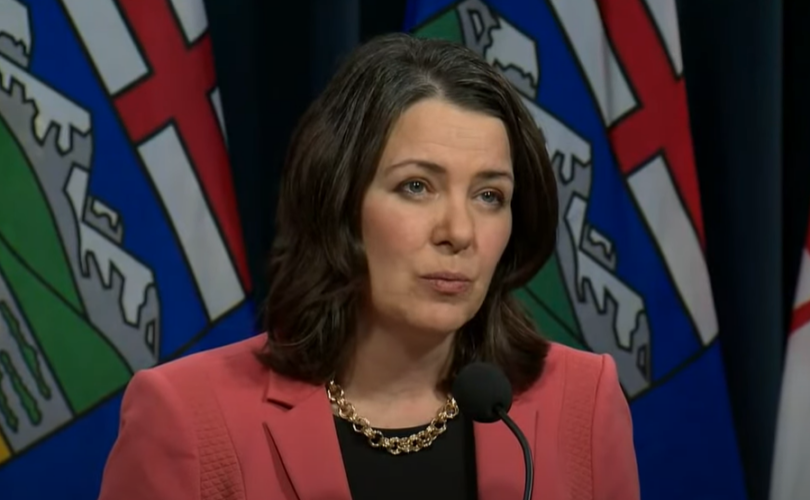
From the Fraser Institute
By Spencer Gudewill and Tegan Hill
Last November, Premier Danielle Smith announced that her government will give up to $1.8 billion in subsidies to Dow Chemicals, which plans to expand a petrochemical project northeast of Edmonton. In other words, $1.8 billion in corporate welfare.
And this is just one example of corporate welfare paid for by Albertans.
According to a recent study published by the Fraser Institute, from 2007 to 2021, the latest year of available data, the Alberta government spent $31.0 billion (inflation-adjusted) on subsidies (a.k.a. corporate welfare) to select firms and businesses, purportedly to help Albertans. And this number excludes other forms of government handouts such as loan guarantees, direct investment and regulatory or tax privileges for particular firms and industries. So the total cost of corporate welfare in Alberta is likely much higher.
Why should Albertans care?
First off, there’s little evidence that corporate welfare generates widespread economic growth or jobs. In fact, evidence suggests the contrary—that subsidies result in a net loss to the economy by shifting resources to less productive sectors or locations (what economists call the “substitution effect”) and/or by keeping businesses alive that are otherwise economically unviable (i.e. “zombie companies”). This misallocation of resources leads to a less efficient, less productive and less prosperous Alberta.
And there are other costs to corporate welfare.
For example, between 2007 and 2019 (the latest year of pre-COVID data), every year on average the Alberta government spent 35 cents (out of every dollar of business income tax revenue it collected) on corporate welfare. Given that workers bear the burden of more than half of any business income tax indirectly through lower wages, if the government reduced business income taxes rather than spend money on corporate welfare, workers could benefit.
Moreover, Premier Smith failed in last month’s provincial budget to provide promised personal income tax relief and create a lower tax bracket for incomes below $60,000 to provide $760 in annual savings for Albertans (on average). But in 2019, after adjusting for inflation, the Alberta government spent $2.4 billion on corporate welfare—equivalent to $1,034 per tax filer. Clearly, instead of subsidizing select businesses, the Smith government could have kept its promise to lower personal income taxes.
Finally, there’s the Heritage Fund, which the Alberta government created almost 50 years ago to save a share of the province’s resource wealth for the future.
In her 2024 budget, Premier Smith earmarked $2.0 billion for the Heritage Fund this fiscal year—almost the exact amount spent on corporate welfare each year (on average) between 2007 and 2019. Put another way, the Alberta government could save twice as much in the Heritage Fund in 2024/25 if it ended corporate welfare, which would help Premier Smith keep her promise to build up the Heritage Fund to between $250 billion and $400 billion by 2050.
By eliminating corporate welfare, the Smith government can create fiscal room to reduce personal and business income taxes, or save more in the Heritage Fund. Any of these options will benefit Albertans far more than wasteful billion-dollar subsidies to favoured firms.
Authors:
Alberta
Official statement from Premier Danielle Smith and Energy Minister Brian Jean on the start-up of the Trans Mountain Pipeline

-
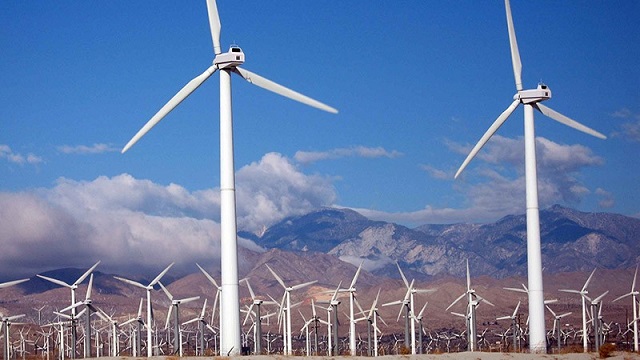
 Economy1 day ago
Economy1 day ago‘Gambling With The Grid’: New Data Highlights Achilles’ Heel Of One Of Biden’s Favorite Green Power Sources
-
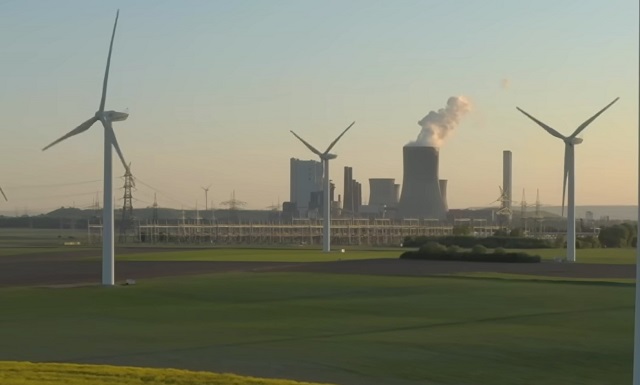
 Energy1 day ago
Energy1 day agoMarket Realities Are Throwing Wrench In Biden’s Green Energy Dreams
-

 illegal immigration2 days ago
illegal immigration2 days agoBiden’s DOJ Threatens To Sue Another State For Enforcing Immigration Law
-
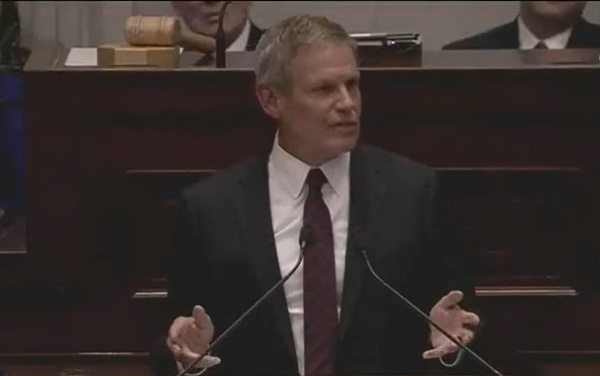
 ESG1 day ago
ESG1 day agoTennessee Taking Lead In Protecting Civil Rights And Free Enterprise—And Stopping Political Debanking
-

 International2 days ago
International2 days agoTrump campaign says he will pardon Jan. 6 prisoners on ‘case-by-case basis’ if re-elected
-

 Brownstone Institute11 hours ago
Brownstone Institute11 hours agoBook Burning Goes Digital
-

 conflict2 days ago
conflict2 days agoNYPD says protesters had weapons, gas masks and ‘Death to America!’ pamphlets
-
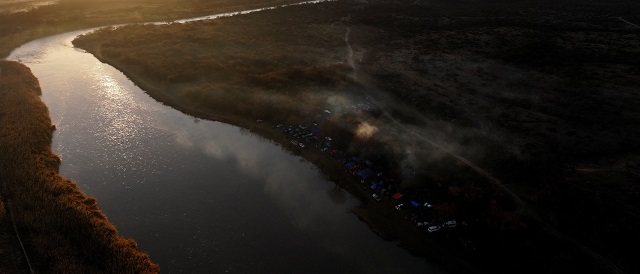
 illegal immigration2 days ago
illegal immigration2 days agoMore Chinese Illegal Migrants Apprehended At Southern Border In Two Days Than In All Of 2021: REPORT






